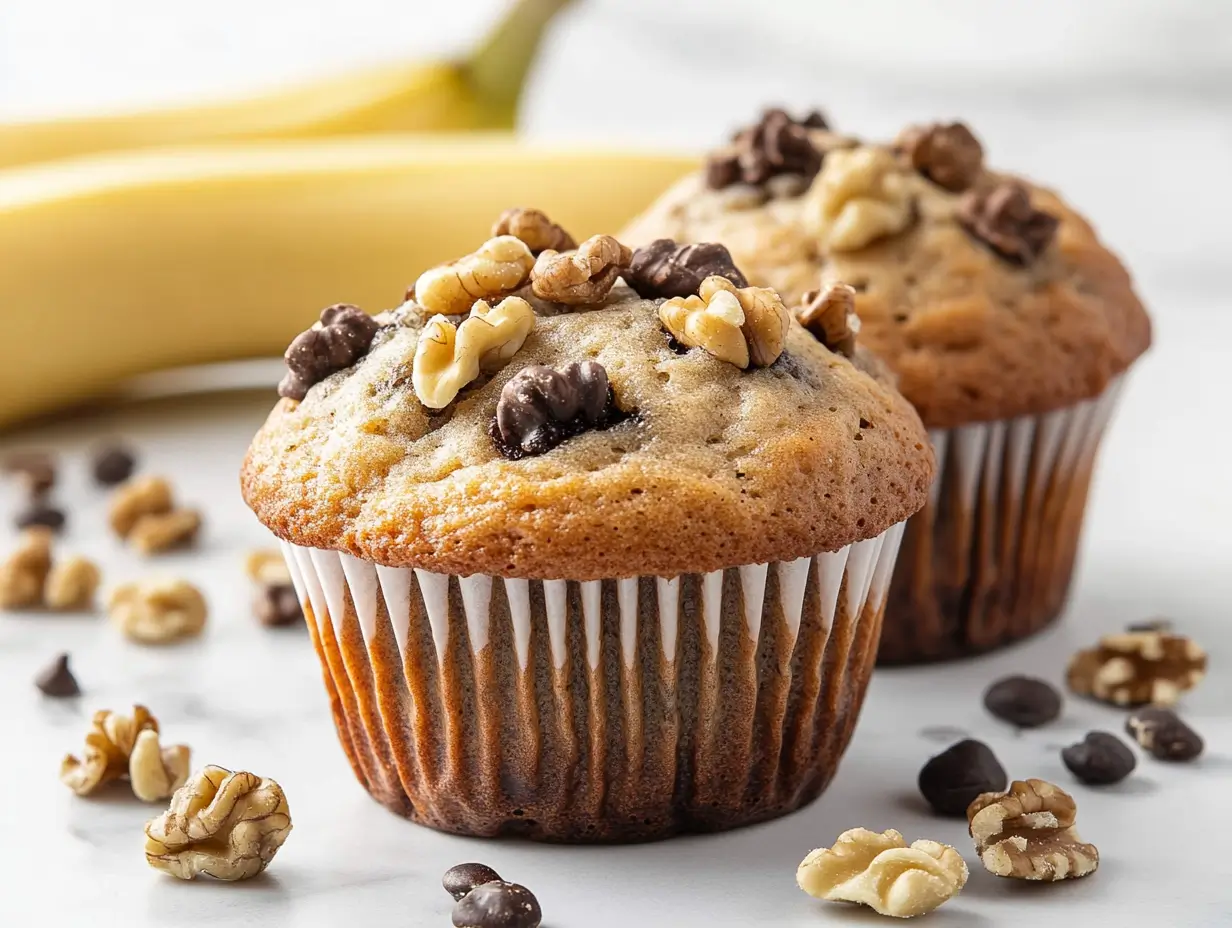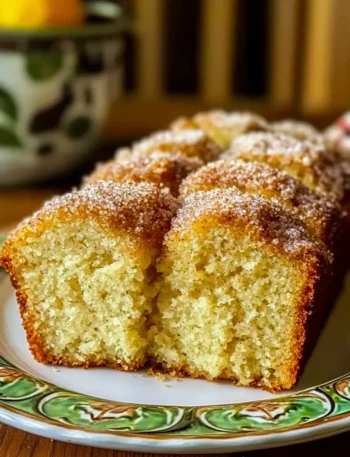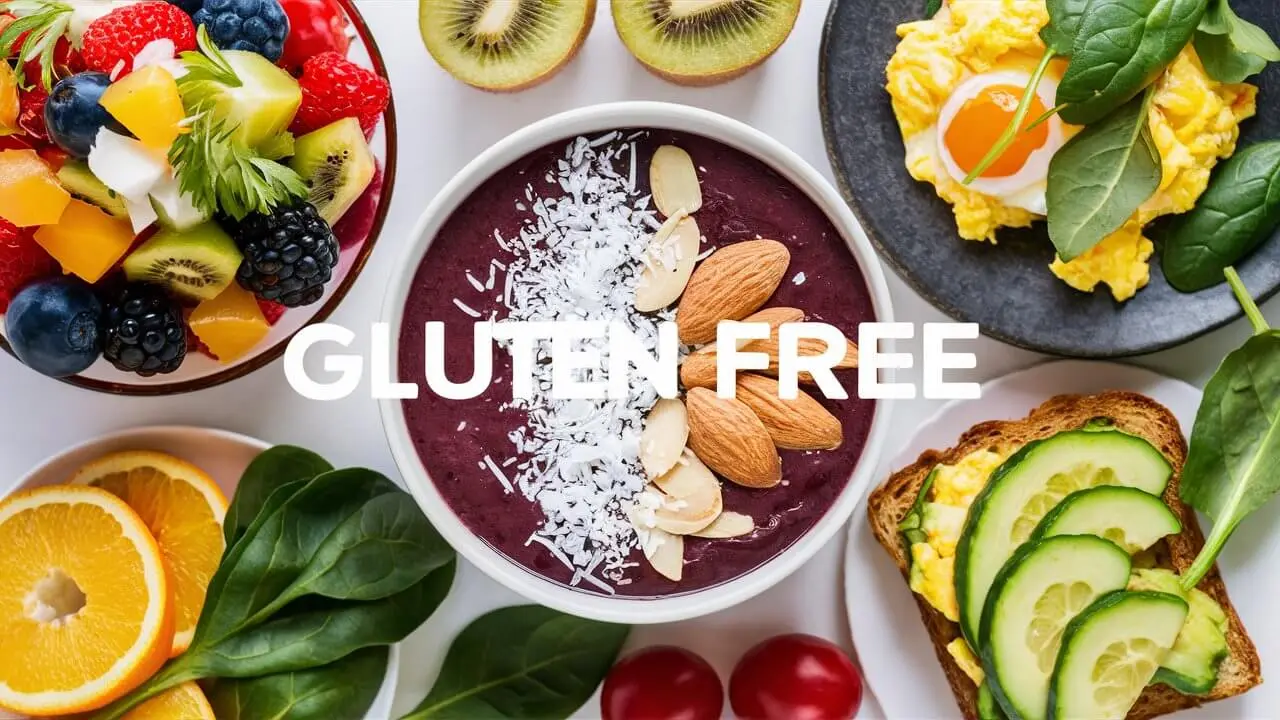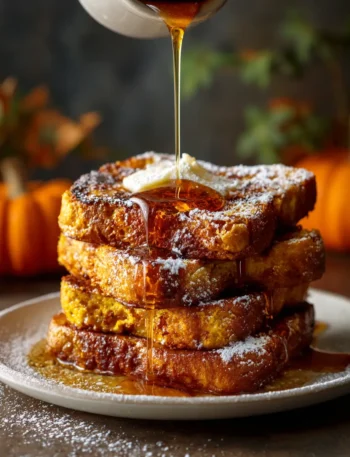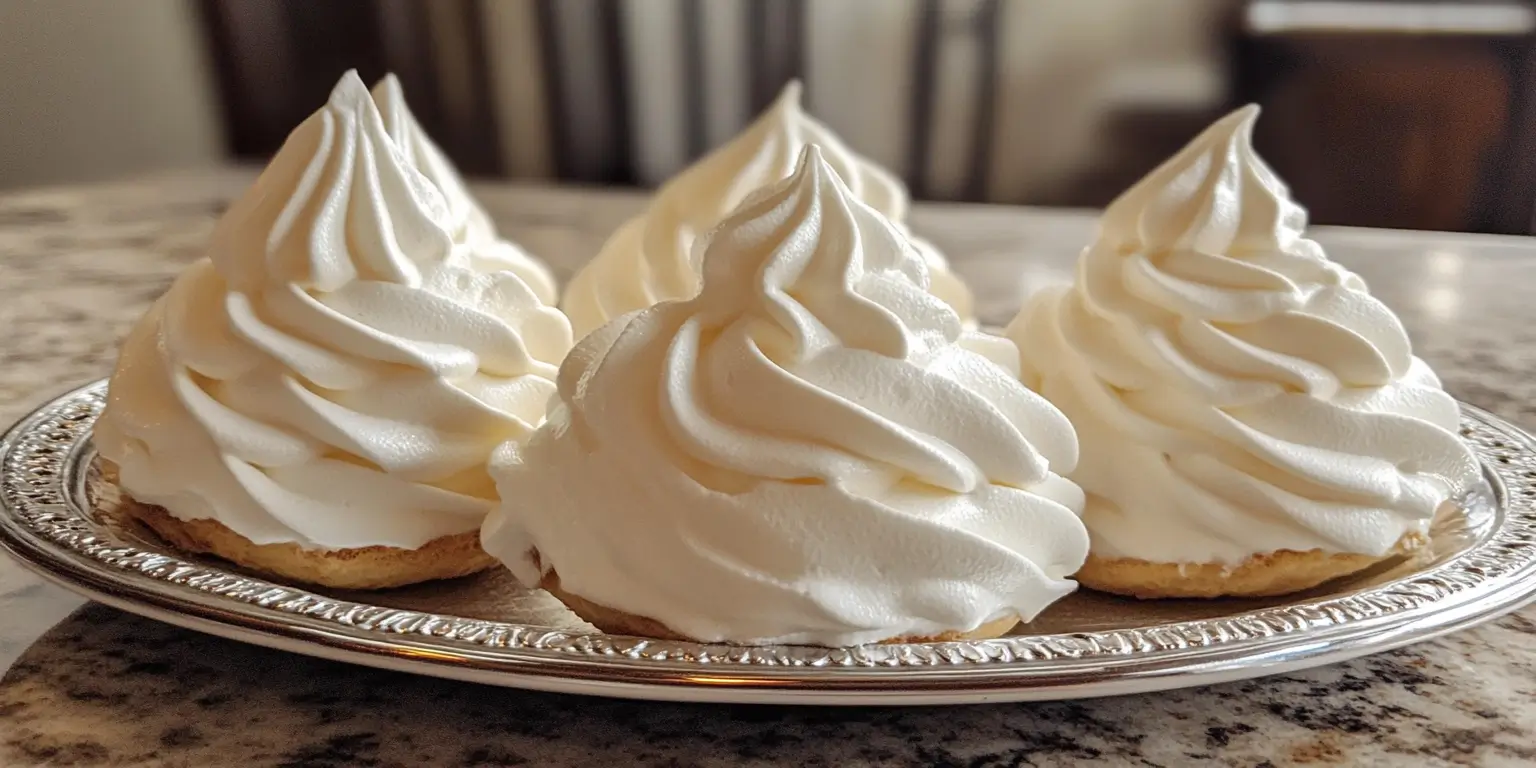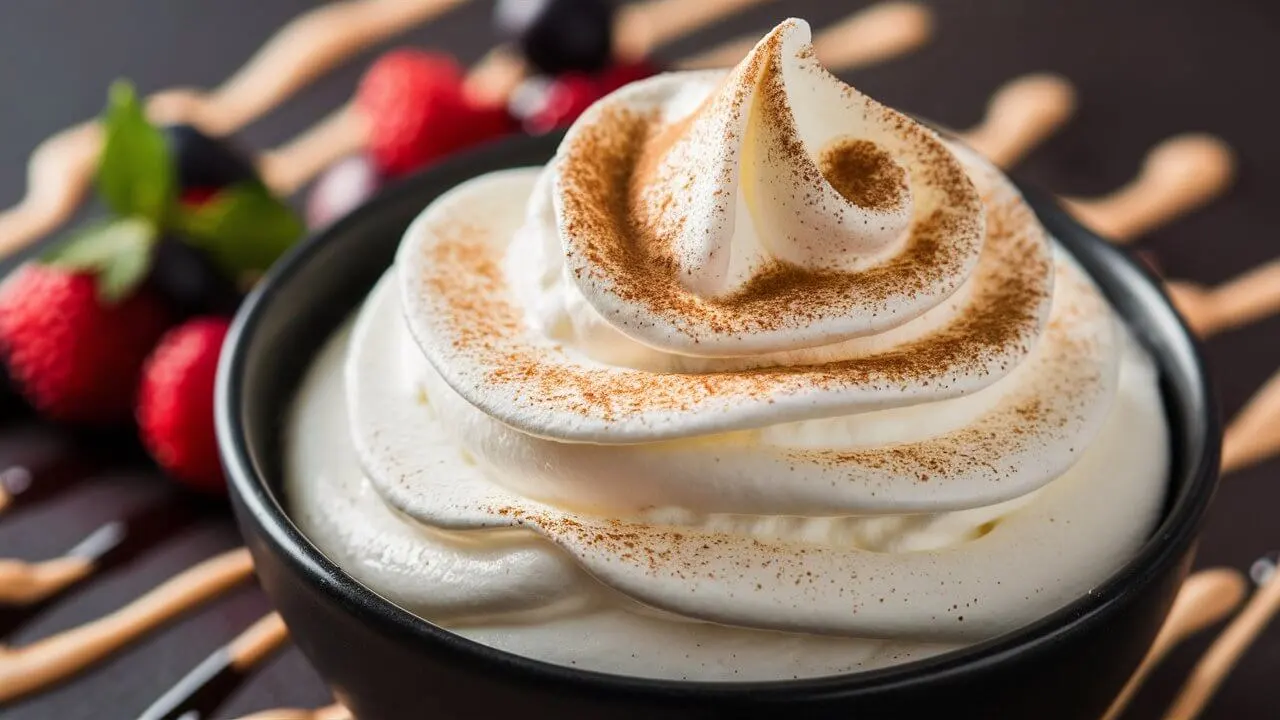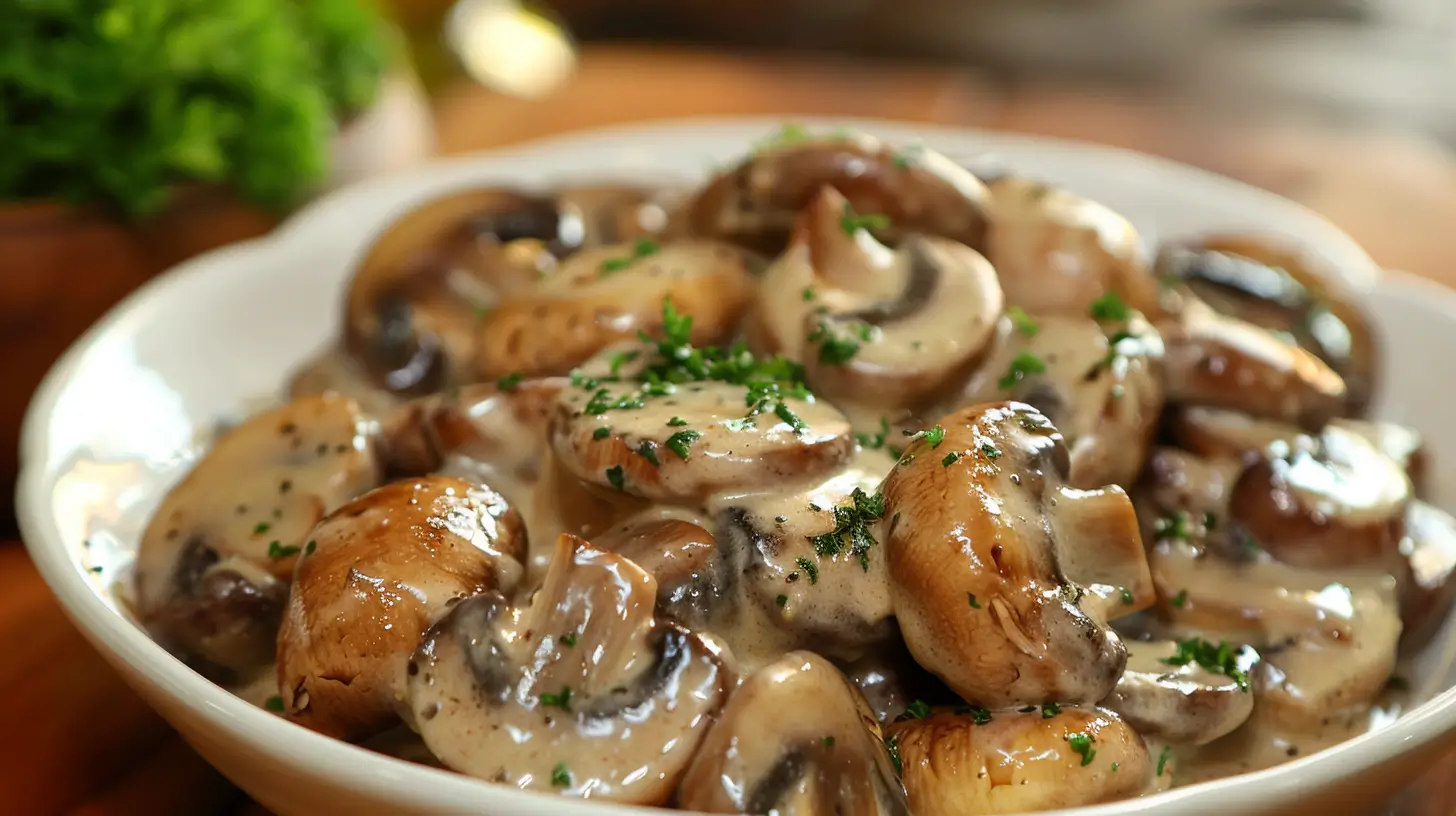Banana nut muffins are a classic favorite that perfectly combines the natural sweetness of ripe bananas with the rich, crunchy texture of nuts. Whether enjoyed as a quick breakfast, a satisfying snack, or a delightful dessert, these muffins never fail to impress. In this comprehensive guide, we’ll dive into everything you need to know about banana nut muffins, from traditional recipes to gluten-free and healthy variations. Additionally, we’ll address some frequently asked questions to provide a thorough understanding of these delicious treats.
Banana Nut Muffin Recipe
Creating the perfect banana nut muffin starts with high-quality ingredients and careful attention to detail. Here’s a classic recipe that guarantees moist and flavorful muffins every time.
Ingredients:
- 1 1/2 cups all-purpose flour
- 1 teaspoon baking soda
- 1 teaspoon baking powder
- 1/2 teaspoon salt
- 3 ripe bananas, mashed
- 3/4 cup white sugar
- 1 egg, lightly beaten
- 1/3 cup melted butter
- 1/2 cup chopped walnuts
Instructions:
- Preheat your oven to 375°F (190°C) and grease a muffin tin or line with muffin liners.
- In a large bowl, combine the flour, baking soda, baking powder, and salt.
- In another bowl, mix the mashed bananas, sugar, egg, and melted butter.
- Stir the banana mixture into the dry ingredients until just combined.
- Fold in the chopped walnuts.
- Spoon the batter into the prepared muffin tin, filling each cup about 2/3 full.
- Bake for about 20 minutes, or until a toothpick placed into the center comes out clean.
- Allow the muffins to cool in the tin for 5 minutes before transferring to a wire rack to cool completely.
Gluten-Free Banana Nut Bread Muffins
For those with gluten sensitivities or preferences, gluten-free banana nut muffins are an excellent alternative. Using gluten-free flour ensures you can still enjoy the same great taste and texture without any gluten.
Gluten-free flours often behave differently than traditional wheat flour. It’s essential to use a blend designed for baking to achieve the right texture. These flours usually include a mix of rice flour, potato starch, and tapioca flour, among others. When using gluten-free flour, you may also want to add a binder like xanthan gum to help hold the muffins together.
Banana Nut Muffins with Almond Flour
Using almond flour in banana nut muffins provides a moist, dense texture and adds a boost of protein. This variation is also suitable for those following a grain-free diet. Almond flour’s natural fats help keep the muffins moist, and its nutty flavor complements the bananas perfectly. When baking with almond flour, it’s crucial to note that it doesn’t absorb moisture the same way as wheat flour, so recipes often need to be adjusted accordingly.
Banana Nut Muffins Recipe Moist
Achieving a moist texture in banana nut muffins is key to making them enjoyable. Moisture in muffins typically comes from the bananas and the fat used in the recipe. Overripe bananas are perfect for this because they are sweeter and moister. Additionally, ingredients like sour cream or yogurt can be added to the batter to increase moisture. Another tip is to avoid overmixing the batter, as this can result in tough muffins. Mix well until all the ingredients are combined for the perfect texture.
Banana Nut Muffins Healthy
Banana nut muffins can be made healthier by making a few adjustments to the traditional recipe. For a healthier version, consider using whole wheat flour instead of all-purpose flour for added fiber. Reducing the amount of sugar and using natural sweeteners like honey or maple syrup can also make the muffins healthier. Incorporating ingredients like flaxseed or chia seeds can provide additional nutrients. Using unsweetened applesauce in place of some of the fat can reduce calories while maintaining moisture.
Banana Nut Muffins with Streusel Topping
Adding a streusel topping to banana nut muffins can elevate their taste and texture. A simple streusel topping typically includes flour, brown sugar, and butter. For added flavor, you can mix in some cinnamon or nutmeg. The streusel topping is sprinkled over the muffin batter before baking, creating a sweet, crunchy layer on top of the muffins. This adds a delightful contrast to the soft, moist muffins.
Frequently Asked Questions
How many calories does a banana nut muffin have?
The calorie content of a banana nut muffin can vary depending on the ingredients used and the size of the muffin. On average, a standard banana nut muffin contains around 200-300 calories. The primary sources of calories in these muffins are the flour, sugar, butter, and nuts. Using healthier alternatives and portion control can help manage the calorie intake. For example, substituting refined sugar with natural sweeteners and using whole grain flour can reduce the overall calorie count. Additionally, being mindful of portion sizes and not overindulging can help keep calorie consumption in check.
How many calories are in one banana muffin?
A typical banana muffin, without any added nuts or toppings, generally contains around 180-250 calories. The calorie content can vary based on the specific recipe and portion size. The main contributors to the calories are the bananas, flour, and sugar. Choosing recipes that use lower-calorie ingredients can help reduce the overall calorie count. For instance, using whole wheat flour, reducing the amount of sugar, or incorporating low-fat dairy products can make the muffins lighter. Additionally, monitoring portion sizes and opting for smaller muffins can help manage calorie intake more effectively.
How many calories are in a banana bread muffin?
Banana bread muffins typically have a similar calorie content to banana nut muffins, averaging around 200-300 calories each. The ingredients used in banana bread muffins, such as bananas, flour, and sugar, contribute to the calorie count. The addition of nuts, chocolate chips, or other mix-ins can increase the calorie content. To manage calories, consider using alternative ingredients like whole wheat flour, natural sweeteners, or low-fat options. Paying attention to portion sizes and not adding excessive toppings can also help maintain a balanced calorie intake.
How many calories are in a banana pecan muffin?
Banana pecan muffins generally have a calorie count of about 250-350 calories per muffin. Pecans are higher in fat and calories compared to other nuts, which can increase the overall calorie content. Also, they provide nutrients and healthy fats. To create a healthier version, you can reduce the amount of sugar and butter used in the recipe. Additionally, using whole grain flour and incorporating low-fat dairy products can help lower the calorie content. Being mindful of portion sizes and not overindulging in toppings can also help manage calorie intake.
Are muffins healthy?
Muffins can be part of a healthy diet when made with wholesome ingredients and enjoyed in moderation. Traditional muffins often contain high amounts of sugar and fat, which can contribute to excess calorie intake. However, by making a few adjustments, muffins can be transformed into a healthier option. Using whole grain flour, reducing sugar, and incorporating fruits, vegetables, or nuts can add nutritional value. Additionally, paying attention to portion sizes and not consuming muffins excessively can help maintain a balanced diet. Homemade muffins allow for more control over ingredients and can be tailored to fit specific dietary needs.
Are muffins healthier than bread?
When comparing muffins to bread, it’s important to consider the ingredients and nutritional content of each. Muffins often contain more sugar and fat compared to bread, especially if they include sweeteners, butter, or oil. However, muffins made with whole grains, fruits, and nuts can offer more nutritional benefits than some types of bread, particularly those made with refined flour and added sugars. On the other hand, bread can be a healthier option if it is made from whole grains and has fewer added sugars and fats. Ultimately, the healthiness of muffins versus bread depends on the specific recipes and ingredients used. For a balanced diet, choosing whole grain versions of both muffins and bread, and moderating portion sizes, is advisable.
How long do banana muffins last?
Banana muffins can last for several days if stored properly. At room temperature, banana muffins typically stay fresh for about 2-3 days. To extend their shelf life, it’s best to store them in an airtight container. If you want to keep them for a longer period, you can refrigerate them, which will keep them fresh for up to a week. For even longer storage, banana muffins can be frozen. When freezing, place the muffins in a single layer on a baking sheet to freeze them individually, then transfer them to a freezer-safe bag or container. Frozen banana muffins can last for up to three months. When ready to eat, you can thaw them at room temperature or warm them in the microwave or oven.
Conclusion
Banana nut muffins are a delicious and versatile treat that can be enjoyed in various ways. Whether you prefer a classic recipe, a gluten-free version, or a healthier alternative, there are countless ways to make these muffins suit your preferences. By understanding the nutritional content and making mindful choices, you can enjoy banana nut muffins as part of a balanced diet. We hope this guide has provided you with valuable insights and inspiration for making and enjoying banana nut muffins in different forms.

